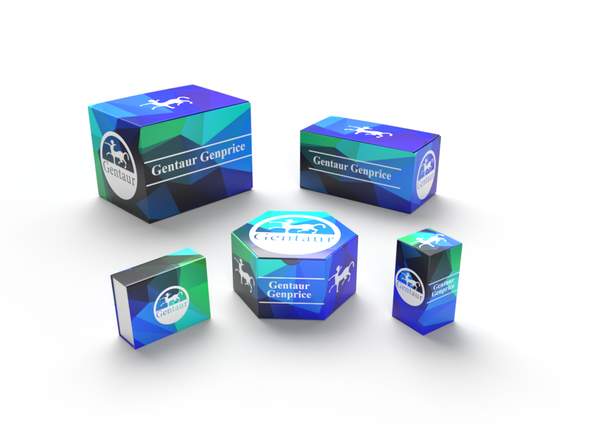740
Sheep Glycogen phosphorylase, liver form (PYGL) ELISA Kit | AE24908SH
- SKU:
- 740-AE24908SH
- Availability:
- Usually ships in 5 working days
Description
Sheep Glycogen phosphorylase, liver form (PYGL) ELISA Kit | AE24908SH | Gentaur UK, US & Europe Distribution
Species Reactivity: Sheep (Ovis aries)
Abbreviation: PYGL
Alternative Name: GSD6; liver glycogen phosphorylase
Application: ELISA
Range: Request Information
Sensitivity: Request Information
Intra-Assay: ≤4.3%
Inter-Assay: ≤6.2%
Recovery: 0, 99
Sample Type: Serum, Plasma, Other biological fluids
Detection Method: Sandwich
Analysis Method : Quantitive
Test Principale: This assay employs a two-site sandwich ELISA to quantitate PYGL in samples. An antibody specific for PYGL has been pre-coated onto a microplate. Standards and samples are pipetted into the wells and anyPYGL present is bound by the immobilized antibody. After removing any unbound substances, a biotin-conjugated antibody specific for PYGL is added to the wells. After washing, Streptavidin conjugated Horseradish Peroxidase (HRP) is added to the wells. Following a wash to remove any unbound avidin-enzyme reagent, a substrate solution is added to the wells and color develops in proportion to the amount of PYGL bound in the initial step. The color development is stopped and the intensity of the color is measured.
Product Overview: PYGL is a homodimeric protein switches from inactive phosphorylase B to active phosphorylase A by phosphorylation of serine residue 15. Activity of this enzyme is further regulated by multiple allosteric effectors and hormonal controls. Humans have three glycogen phosphorylase isozymes that are primarily expressed in liver, brain and muscle, respectively. The liver isozyme serves the glycemic demands of the body in general while the brain and muscle isozymes supply just those tissues. In glycogen storage disease type VI, or Hers disease, mutations in liver glycogen phosphorylase inhibit the conversion of glycogen to glucose and results in moderate hypoglycemia, mild ketosis, growth retardation and hepatomegaly.
Stability: The stability of ELISA kit is determined by the loss rate of activity. The loss rate of this kit is less than 5% within the expiration date under appropriate storage condition. The loss rate was determined by accelerated thermal degradation test. Keep the kit at 37°C for 4 and 7 days, and compare O.D.values of the kit kept at 37°C with that of at recommended temperature. (referring from China Biological Products Standard, which was calculated by the Arrhenius equation. For ELISA kit, 4 days storage at 37°C can be considered as 6 months at 2 - 8°C, which means 7 days at 37°C equaling 12 months at 2 - 8°C) .






